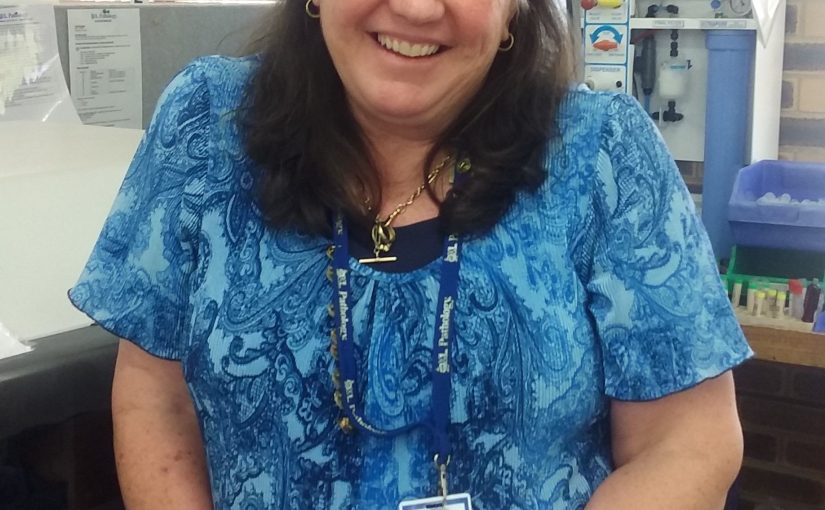Julie Hass has been working in the same Sunshine Coast lab for 40 years and has no plans to retire anytime soon. When she began her training as a medical scientist in 1977, the world of pathology looked rather different.
Tasks were performed manually with great skill and precision. The work was labour intensive, time-consuming and, sometimes quite challenging. Back then mouth pipetting was the norm for pathology tests. Here liquids were transferred from one test tube to another using a straw-like tool. Platelets and white blood cells were counted manually in a chamber and all reports were hand-written.
“I feel very fortunate to have learnt everything manually. It has taught me solid skills that I still apply to my work today. When I look back on the past, it seems amazing where we’ve come from and where we’re heading”, says Julie.
With a wave of technology and innovation during her long career, Julie has witnessed a dramatic evolution in pathology. The introduction of computers, diagnostic machines and 24-hour service has led to faster diagnostic tests and more efficient patient care.
One thing that has remained constant throughout the years is Julie’s dedication to providing the best possible service to local communities. When Cyclone Debbie wreaked havoc on the Sunshine Coast, Julie stayed in the lab for 18-hours straight to ensure that patients received their results on time.
In her role as a medical scientist and lab manager, Julie not only helps patients but also trains other scientists. As a world champion in softball, her passion for teamwork has enabled her to mentor and inspire hundreds of pathology workers.
Managing a team of 32 staff and servicing six hospitals means there’s rarely a dull day in the lab. “We service oncology departments, maternity units and emergency rooms with diverse and complex needs. Whether it’s a baby affected by sepsis or an elderly patient in need of urgent blood products, we need to work fast to save lives.”
Despite her level of seniority, Julie still likes to work on the bench alongside her colleagues. “Because I’m mentoring staff, I like to lead by example and take a hands-on approach. As pathology develops, I want to keep my skills up to date. Even after 40 years, it’s good to be kept on your toes!”

